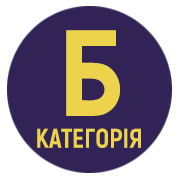EXPEDIENCY OF AUTHENTIC LITERATURE USE IN ESL CLASSES IN UNIVERSITIES
DOI:
https://doi.org/10.32782/ped-uzhnu/2024-5-7Keywords:
authentic literature, critical thinking, ESL classes, cultural awareness, contextual learning.Abstract
In the article, the authors reveal current issues regarding the expediency of using authentic literature in English language classes in higher education institutions. Emphasis is placed on the need to introduce innovations into the educational process in order to train a competitive specialist who is able to freely express opinions and carry out analytical activities in accordance with modern challenges. The aim of the article is to investigate the effectiveness of using authentic literary texts in English language classes, which contributes not only to the deepening of language skills, but also affects the comprehensive development of the student's personality, forms cultural awareness and activates critical thinking. Modern foreign studies were analyzed, which considered the advantages of using literary texts, in particular, confirmed their role in the formation of cultural awareness of students, promoting the development of critical thinking and emotional intelligence, improving creative writing based on offered tasks. The attention of researchers is focused on the expediency of using modern literature, taking into account the relevance of the topic and its diversity, which makes language learning interesting, conscious and productive. The authors of the article analyzed the pedagogical advantages and practical application of modern literature in educational programs, in particular, indicated their effectiveness and efficiency. A survey was conducted for students of the first (Bachelor's) and second (Master's) levels of higher education in order to find out the influence of authentic modern literature on the development of language skills and critical thinking. The answers of the respondents regarding the question of the effectiveness of the use of the mentioned literature in English classes, the understanding of the author’s position and their own vision of the problematic of the work were analyzed. It is concluded that working with an authentic text in class activates the educational activity of students, provides an opportunity to freely express their own opinions, discuss and justify their own position.
References
Arboleda-Arboleda A., & Castro-Garcés, A. Y. Fostering Language Learning in the University EFL Classroom through Literature: A Task-Based Approach. Gist Education and Learning Research Journal. No.19 (July – December, 2019). P. 101-127.
Collie, J., & Slater, S. Literature in the Language Classroom: A Resource Book of Ideas and Activities. Cambridge University Press, Cambridge, 1987. P.266.
Gomez-Galisteo M. Carmen. Introduction to the Special Issue: Teaching Literature in the EFL Classroom. Anglo Saxonica. No. 22, issue 1, art. 2, 2024. P. 1-4.
Hussein, S., Meena, R. S., & Ali, H. F. Integration of Literature in English Language Teaching: Learners’ Attitudes and Opinions. Canadian Journal of Language and Literature Studies, 1(1), 2021. P. 27–43.
Lazar G. Literature and Language Teaching: A Guide for Teachers and Trainers (Cambridge Teacher Training and Development). Cambridge: Cambridge University Press, 1993. 267 p.
McKay S. Literature as content for ESL/EFL. Teaching English as a second or foreign language. 3rd ed. Boston: Heinle & Heinle, 2001. P. 319-332.
Nad-Kolozhvari E. Teaching English literature in general educational institutions of Ukraine. Contemporary studies in foreign philology: Research paper collection. 2022. Issue 3-4 (21-22). P. 365-373.
Nanda D. S., & Susanto S. Using Literary Work as Authentic Material for the EFL Classroom in Indonesia. International Journal of Innovation, Creativity and Change. Vol. 12, Issue 12, 2020. P. 1057-1064.
Nuswantara K., Hermanto, Ratnasari V., Susilowati E. LITERATURE IN THE CLASSROOM: HOW LITERATURE WORKS IN A LANGUAGE CLASSROOM. Engaging with Literature Creatively, November 11-12, 2014, UKSW. P. 102-113.
Saleh, S. CRITICAL THINKING AS A 21st CENTURY SKILL: CONCEPTIONS, IMPLEMENTATION AND CHALLENGES IN THE EFL CLASSROOM. European Journal of Foreign Language Teaching. Volume 4, Issue 1. 2019. P. 1-16.
Savvidou C. An integrated approach to the teaching of literature in the EFL classroom. The Internet TESL Journal (12). 2004. URL: http://iteslj.org/Techniques/Savvidou-Literature.html
Tseng F. Introducing Literature to an EFL Classroom: Teacher’s Presentations and Students’ Perceptions. Journal of Language Teaching and Research. Vol. 1, No. 1, January 2010. P. 53-65.
Uddin Md Momin. Acquiring English in EFL Classroom: Role of Literature. English Language and Literature Studies. Vol. 9, No. 1. 2019. P. 17-23.






